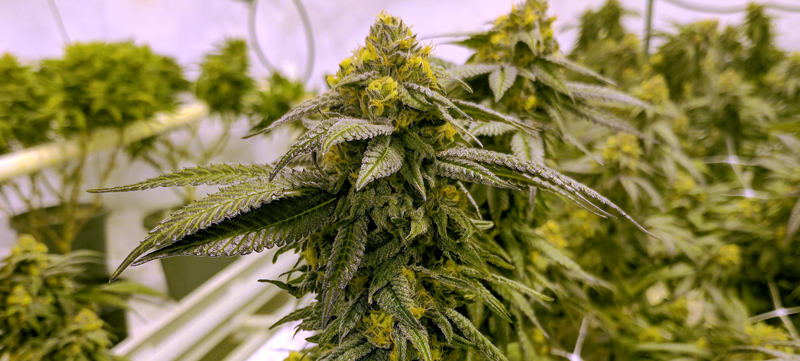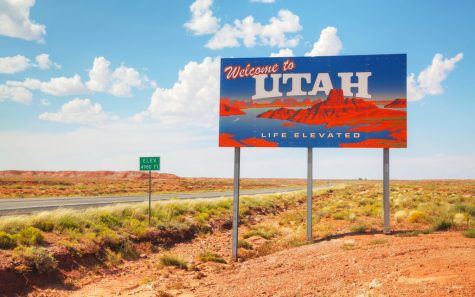These states will likely be voting on cannabis legalization in November
In less than three months, election day will commence. The event is sure to be unpredictable, what with 435 seats up for grabs in the House of Representatives. Moreover, approximately a third of seats in the Senate will be at stake, in addition to the oval office. Above all, the outlook for legal cannabis remains promising, with seven states leaning closer to a vote.
Although it is highly unlikely that the federal scheduling of cannabis will be changed this year, there’s a good chance that a handful of pro-cannabis states will edge closer to legalization.
Who will vote on legal cannabis at the 2020 November elections?
Residents of five U.S states are guaranteed to vote on cannabis at the November 2020 elections — New Jersey, Mississippi, South Dakota, Montana and Arizona. An additional two may follow in these states’ footsteps — Nebraska and Oklahoma.
Let’s take a closer look at where each of these states stands on the subject of cannabis reform:
- New Jersey
New Jersey’s constitutional amendment to legalize recreational cannabis looks set to pass this November. Support is high, with an April survey from Monmouth University showing that 61 percent of state residents would support statewide cannabis legalization.
- Mississippi
Despite the idea of recreational cannabis legalization being heavily dismissed by conservatives in Mississippi, voters will have the chance to decide whether or not Initiative 65 or Initiative 65A passes this November. In the event that this does happen, medical cannabis who are diagnosed with one (or more) of 20+ qualifying conditions could receive cannabis-based medicines.
- Montana
According to a Big Sky poll conducted last year, 51 percent of local residents support legalization. Montana Secretary of State recently certified two initiatives that were submitted by the New Approach Montana campaign. I-190, would legalize cannabis for adult-use purposes, whereas CI-118 would change the state constitution to “allow the legislature or the people by initiative to establish the legal age for purchasing, consuming, or possessing marijuana,” which I-190 confirms would be 21. If a successful vote takes place, recreational cannabis would be legalized and related products taxed at 20 percent. Moreover, individuals who were formerly convicted of a cannabis-related offense could benefit from expungement or resentencing.
- South Dakota
Medical and recreational cannabis will be voted on during the same ballot measure this year. Measure 26, if approved, would enable state residents to obtain medicine as a treatment for debilitating conditions. Then there’s Constitutional Amendment A, which would legalize recreational cannabis statewide. Regulations for hemp and medical cannabis would need to be developed before April 1, 2022.
- Arizona
The submission of signatures for the Smart and Safe Arizona Act were recently approved, meaning that a recreational cannabis measure will be featured on Arizona’s ballot measure in November. Should state residents vote to pass the Act, legal adult-use cannabis sales would be imposed with a 16 percent tax — revenue of this kind would be distributed among the state’s highway user revenue fund and local colleges, as well as police and fire departments.
- Nebraska
Although Nebraska is renowned for being a fairly prohibitionist state, more than 182,000 unverified signatures to legalize medical cannabis by constitutional amendment were submitted to Nebraska’s Secretary of State on July 2. If validated and successfully voted on this November, adults and children with parental/guardian permission could legally buy, use and/or possess cannabis for serious medical conditions. Rules and regulations would need to be hashed out by the Nebraska Legislature. A recent poll conducted by McLaughlin and Associates showed that 76 percent of likely Nebraskan voters approved of legal medical cannabis.
- Oklahoma
A number of constitutional amendments stand a chance at being featured on Oklahoma’s 2020 ballot measure later this year. One of the most promising measures is Question 807, which would see all non-medical cannabis products be taxed at 15 percent. In addition to this, individuals who have previously served a sentence for a cannabis-related felony could apply for expungement or redesignation. While this could provide some major benefits for convicted individuals who require medical cannabis as a treatment, a 2019 poll showed that 59 percent of Oklahomans would vote against recreational legalization.













